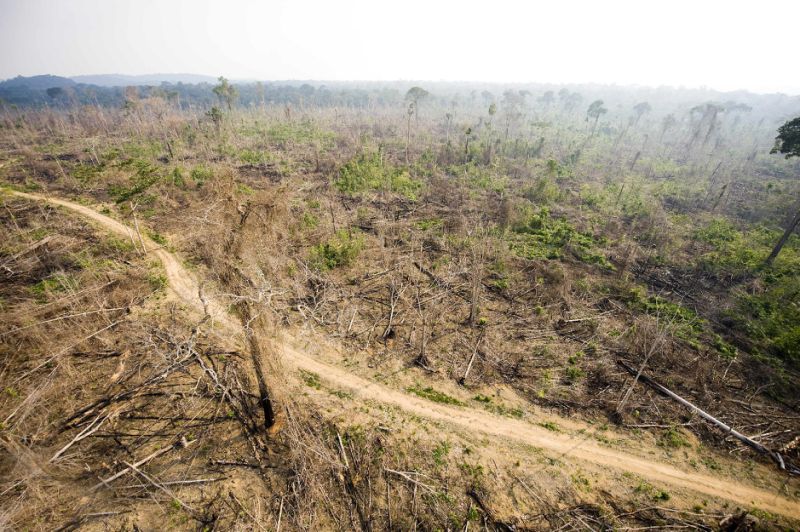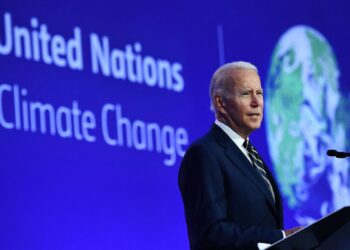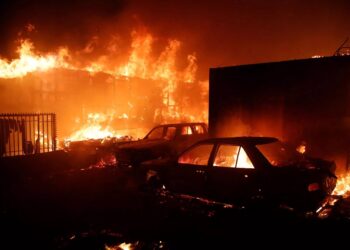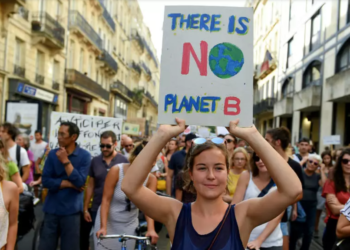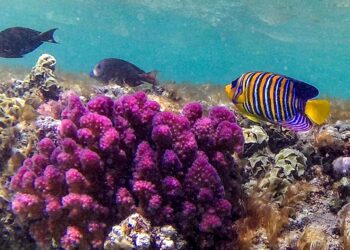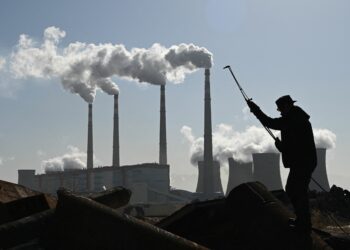Humanity is rapidly destroying the natural world upon which our prosperity – and ultimately our survival – depends, according to a landmark United Nations assessment of the state of Nature released Monday.
Changes wrought by decades of pillaging and poisoning forests, oceans, soil, and air threaten society “at least as much as climate change,” said Robert Watson, who chaired the 132-nation meeting that validated a Summary for Policymakers forged by 450 experts.
One million animal and plant species face extinction, many within decades, they reported.
Alarmingly, the accelerating pace at which unique life-forms are disappearing – already tens to hundreds of times faster than during the last ten million years – could tip Earth into the first mass extinction since non-avian dinosaurs died out 66 million years ago.
In the short term, humans are not at risk, said Josef Settele, a professor at the Helmholtz Centre for Environmental Research in Germany and co-chair of the U.N. Intergovernmental Science-Policy Platform on Biodiversity and Ecosystem Services.
“In the longer term, it is hard to say,” he told AFP. “If humans do go extinct, Nature will find its way, it always does.”
Halting and reversing these dire trends will require “transformative change” – a sweeping overhaul of the way we produce and consume almost everything, especially food, the report concluded.
“We are eroding the very foundations of our economies, livelihoods, food security, health, and quality-of-life worldwide,” said Watson.
The pushback from “vested interests,” he added, is likely to be fierce.
“We will agree on the best ways to enhance the place of biodiversity on the international stage,” French environment minister Francois de Rugy said at a meeting of G7 environment ministers in eastern France.
Drawing from 15,000 sources and an underlying 1,800-page report, the executive summary details how our growing footprint and appetites have compromised the natural renewal of resources that sustain civilization, starting with fresh water, breathable air, and productive soil.
A Vicious Cycle
An October report from the U.N.’s climate science panel painted a similarly dire picture for climate change and likewise highlighted the need for social transformation “on an unprecedented scale” to cap the rise in temperature at 1.5 degrees Celsius (2.7 Fahrenheit).
Climate change and biodiversity loss, it turns out, feed off each other in a vicious cycle.
Deforestation and industrial agriculture are major drivers of species and ecosystem decline, but also account for at least a quarter of man-made greenhouse gas emissions.
AFP graphic showing biodiversity loss around the world measured in percentage compared to an intact ecosystem pic.twitter.com/YNBKzOALYx
— AFP news agency (@AFP) April 29, 2019
Global warming, in turn, is pushing thousands of animals and plants out of their comfort zones, and intensifies the kind of heatwaves and droughts that recently fuelled unprecedented fires in Australia, Indonesia, Russia, Portugal, California and Greece.
The overlapping drivers of global warming and biodiversity loss point to shared solutions, but there is potential for policy conflict too, the new report cautioned.
Plans to green the global economy reserve a crucial role for burning biofuels and locking away the CO2 released, a technology known as BECCS.
But the huge tracts of land needed to grow energy crops on this scale – roughly twice the size of India – would clash with the expansion of protected areas and reforestation efforts, not to mention food production.
Consumer Society
For the first time, the U.N. body has ranked the top five causes of species lost and the degradation of Nature.
By a long shot, the first two are diminished or degraded habitat, and hunting for food or trade – often illicit – in body parts.
All but seven percent of major marine fish stocks, for example, are in decline or exploited to the limit of sustainability despite efforts by regional management organizations to fish sustainably.
Global warming is third on the list, but is likely to move up.
“We can see the climate change signal getting stronger really, really quickly,” IPBES co-chair Sandra Diaz, a professor at the National University of Cordoba in Argentina, told AFP.
Numbers four and five are pollution – 400 million tons of heavy metals, toxic sludge, and other waste are dumped into oceans and rivers each year – and alien species, such as rats, mosquitoes, snakes and plants that hitch rides on ships or planes.
“Every extinction of a species is a failure of humankind,” said Alexandre Antonelli director of Britain’s Royal Botanical Gardens in Kew, reacting to the report.
“We can’t just preserve, we must reverse the trend by increasing biodiversity.”
The heavily negotiated text does not set benchmarks for progress or “last chance” deadlines for action, as the 2018 climate report did.
In an open letter, some 600 experts, business leaders and celebrities led by conservationist Jane Goodall urged world leaders to “halt the decline in Nature.”
“We must radically change the way we live, including how we use energy to power our societies, grow our food, and manage our waste,” they wrote.
The U.N. panel isn’t mandated to make explicit policy recommendations.
But it does point unmistakably to actions needed: reduce meat consumption, halt deforestation in tropical countries, discourage luxury consumption, slash perverse subsidies, embrace the concept of a low-growth economy.
The report will “serve as a basis for redefining our objectives” ahead of a key meeting of the UN Convention on Biological Diversity in China in October 2020, said co-author Yunne Jai Shin, a scientist at the Research Institute for Development in Marseilles.
More on the Subject


